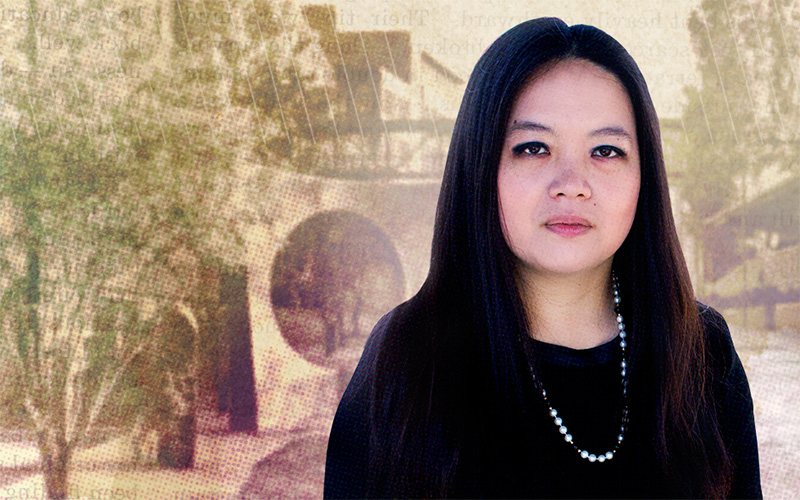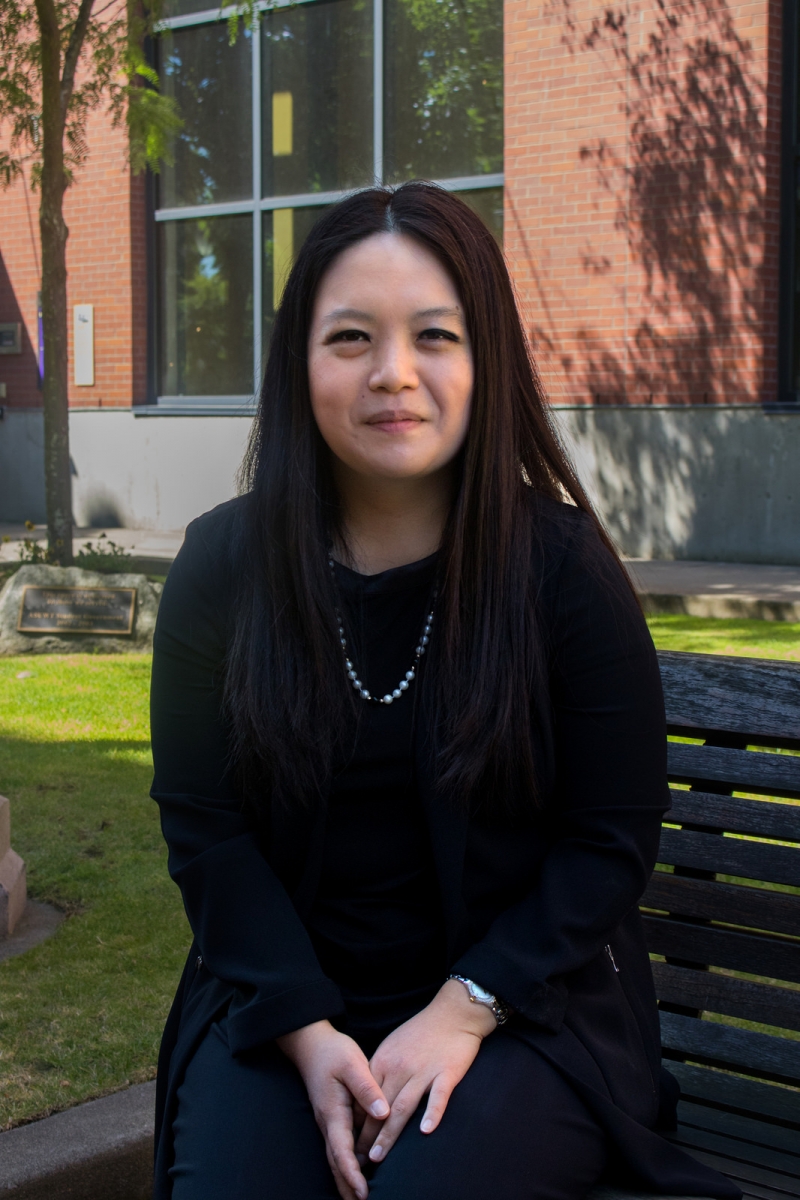
Get to Know Rachel Endo
New Dean wants to build on the School of Education's already strong foundation.
Dr. Rachel Endo wants to build mirrors. Endo, the inaugural dean of UW Tacoma’s School of Education, is guided by a belief in access and opportunity. Her reference to mirrors reflects her vision for the school of education. Endo wants K-12 and higher education to be more representative. She believes the school of education can take the lead in creating equitable and inclusive spaces. “I want students to see mirrors in terms of who is teaching them and/or who is leading them,” she said.
In 2016 the U.S. Department of Education released a report on racial diversity in the educator workforce. Data showed that in 2011-2012 (the year in which information was collected) 82% of public school teachers were white. “Teaching has historically been and still is a segregated field,” said Endo.
Endo is a first-generation college student. At first, college didn’t seem like an option. “I was in the bottom quarter of my high school graduating class,” she said. “Statistically I wasn’t college ready. Several of my teachers also viewed me as a challenging student who was not capable of academic success.”
Endo persisted, largely thanks to the encouragement of others. “I had mentors who saw my potential. Rather than viewing me as ‘at risk,’ they saw me as ‘at promise,’ she said. A native of Nebraska, Endo enrolled in Metropolitan Community College in Omaha and quickly found her footing. She transferred to the University of Nebraska at Omaha (UNO), where she joined Project Achieve, a TRIO Program that served first-generation students. (Federally-funded TRIO Programs (TRIO) provides outreach and student services designed to identify and assist individuals from disadvantaged backgrounds.) At UNO, she earned a BA in political science, an MPA in public management and an MA in education.
Endo received her Ph.D. in education from the University of Illinois Urbana-Champaign. She comes to UW Tacoma after serving as chair of the teacher education department at Hamline University for seven years. Prior to Hamline, she held various administrative and teaching positions in Illinois and Nebraska.

UW Tacoma’s School of Education trains and certifies teachers and school administrators. The school’s mission is to “prepare ethical and reflective educators who transform learning, contribute to the community, exemplify professionalism, and promote diversity.”
Endo believes her training and background and the mission of the school are complementary. “The really incredible thing about this school is, faculty and staff have made social justice a core component of how future teachers and leaders are trained,” she said. “We have a really strong foundation.”
Endo points to several examples already in place at the school. In the Secondary Education Program, students are required to assemble a portfolio that demonstrates, among other things, a robust understanding of how they, as future teachers, need to embed equity-centric practices in all aspects of their work ranging from the course materials they choose to how they teach to meet the needs of all learners. Faculty across programs also require students to understand the larger context of how and why different types of inequities exist in school-based settings, and empower students to become socially conscious practitioners. As another example, the Educational Leadership program focuses on promoting equity as a core learning outcome, and preparing students to become socially responsible leaders.
Endo believes that diversifying the teaching force is a significant step toward promoting equity in schools. “Schools of education have a social responsibility to ask themselves critical questions about what and who we represent. That’s my lens through which I view this work,” she said. Getting students the resources they need to succeed and valuing every individual’s experience and personal history are starting points. “Ultimately, what drew me to UW Tacoma was that the faculty and staff in the School of Education centrally believe in the success of all learners,” said Endo. “They are committed to finding ways to recruit a strong cadre of equity-minded leaders and teachers who will positively transform our schools.”
Early in her career Endo committed herself to working at colleges and universities in urban settings. “That’s [also a] part of what drew me [to UW Tacoma],” she said. “Being in an urban community with a commitment to equity and urban education was key.”
Endo looks forward to developing new community partnerships while maintaining and supporting the impressive work already undertaken by faculty. “We need to further strengthen our outreach with schools and different community organizations to make sure we’re living our equity-focused mission on a day-to-day basis,” said Endo.
The state of Washington recently passed legislation requiring greater accountability for schools to meet the needs of English-language learners. According to the U.S. Department of Education, there is also a growing teacher shortage in the state in 17 subject areas including in three areas offered in the School of Education: math, science, and special education. Endo is confident that the School of Education will play a pivotal role in helping address these statewide needs. “I look forward to encouraging people from diverse backgrounds and walks of life to consider education a career,” she said.
Endo, who officially started on July 1, is settling into the position and doing a “listening tour,” gathering input on strengths and opportunities. She’s already looking to the future. She hopes to build on the momentum captured by the program’s elevation to a school. Endo will spend these early months listening to students, faculty, alumni, staff, and various community partners, and based on their feedback, will frame a strategy to keep the School of Education moving on its upward trajectory.
“Our best measure of success will be the type of feedback we receive from the community and our partners,” said Endo. “For example, if K-12 students and their families believe that they are receiving high-quality instruction and services from our graduates, and if our school partners see us as collaborators who are being responsive to their concerns and needs, then I believe we can say with confidence that we have fulfilled our mission.” she said. “Ultimately, time will tell how well we’ve lived up to our promise.”



